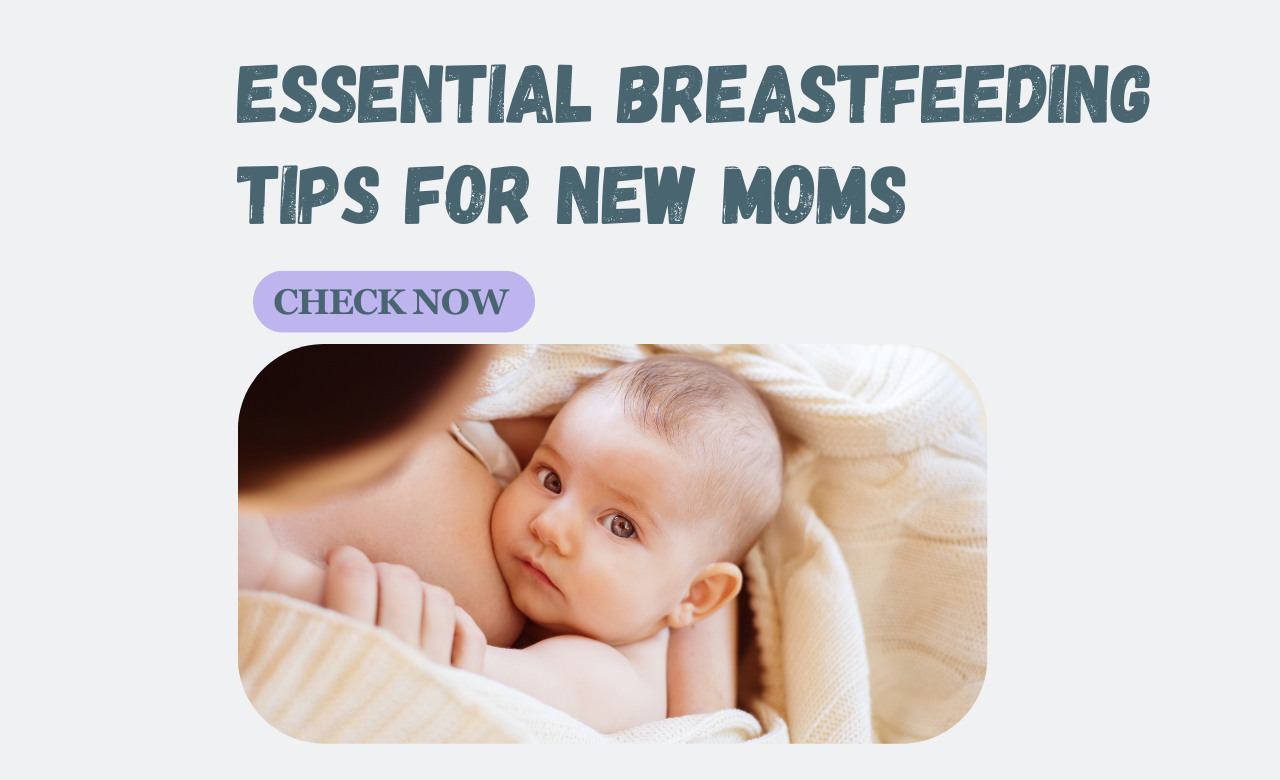The journey into motherhood is a profound and transformative experience, marked by moments of joy, challenges, and an overwhelming sense of responsibility. Among the myriad of decisions new moms face, breastfeeding stands as a significant milestone in nurturing the health and connection between mother and baby. In this exploration, we delve into essential breastfeeding tips, offering guidance and insights to support new moms on their breastfeeding journey.
Establish a Comfortable Nursing Environment
Creating a comfortable and serene nursing environment is crucial for both mom and baby. Find a quiet, cozy spot where you can relax during feedings. Use pillows to support your back and arms, ensuring a comfortable posture. Dim lighting can create a soothing atmosphere, enhancing the bonding experience between you and your baby.
Embrace the Learning Curve
Breastfeeding is a skill that both you and your baby will learn together. Be patient with yourself and your little one as you navigate the learning curve. Seek support from lactation consultants, nurses, or experienced moms who can offer guidance and encouragement. Remember, it's okay to ask for help, and practice makes perfect.
Master the Art of Latching
A proper latch is fundamental to successful breastfeeding. Ensure that your baby's mouth covers a significant portion of the areola, not just the nipple. A deep latch promotes effective milk transfer and reduces the risk of nipple soreness. If you're experiencing discomfort, gently break the latch and try again, ensuring your baby's mouth is wide open.
Prioritize Skin-to-Skin Contact
Skin-to-skin contact is a powerful bonding tool that also supports breastfeeding. Spend time with your baby skin-to-skin, both immediately after birth and during feeding sessions. This closeness stimulates the release of oxytocin, the hormone responsible for milk letdown, and fosters a strong emotional connection.
Establish a Breastfeeding Routine
Creating a consistent breastfeeding routine helps your baby understand when to expect feedings. While newborns may feed frequently, having a general schedule can provide a sense of predictability. Pay attention to your baby's hunger cues, such as rooting or sucking on hands, and feed on demand when needed.
Stay Hydrated and Well-Nourished
Proper nutrition is crucial during the breastfeeding journey. Drink plenty of water to stay hydrated, and maintain a balanced diet rich in nutrients. Consider taking prenatal vitamins or supplements if recommended by your healthcare provider. A healthy diet contributes to your well-being and supports the quality of your breast milk.
Find a Comfortable Breastfeeding Position
Experiment with various breastfeeding positions to find the one that works best for you and your baby. Common positions include the cradle hold, cross-cradle hold, football hold, and side-lying position. A comfortable and well-supported position reduces strain on your body and enhances the overall breastfeeding experience.
Be Mindful of Your Baby's Diaper Output
Monitoring your baby's diaper output is an indirect way to ensure they are getting enough milk. In the early days, expect around six to eight wet diapers and several bowel movements daily. Adequate diaper output indicates that your baby is receiving sufficient nourishment through breastfeeding.
Address Potential Breastfeeding Challenges
Breastfeeding may come with its share of challenges, such as engorgement, nipple soreness, or latch issues. Be proactive in addressing these challenges. Use cold or warm compresses for engorgement, seek guidance on latch improvement, and consider nipple creams for soreness. Consulting a lactation consultant or your healthcare provider can provide valuable solutions.
Express Milk to Relieve Engorgement
Engorgement, when breasts become overly full and firm, can be uncomfortable. If your baby isn't able to nurse effectively, consider expressing milk to relieve engorgement. Use a breast pump or hand expression to soften the breast before attempting to latch your baby. This ensures a more comfortable feeding experience for both of you.
Trust Your Instincts
Motherly instincts are a powerful guide during the breastfeeding journey. Trust your intuition and pay attention to your baby's cues. If you sense something is amiss or your baby seems hungry, respond promptly. Your ability to understand and respond to your baby's needs is a crucial aspect of the breastfeeding relationship.
Manage Stress and Relaxation
Stress can impact your breastfeeding experience and milk supply. Find moments to relax and unwind, whether it's through deep breathing exercises, gentle walks, or short breaks. A calm and relaxed state positively influences the release of oxytocin, promoting a smoother breastfeeding process.
Know When to Seek Professional Support
If you encounter persistent breastfeeding challenges or concerns, don't hesitate to seek professional support. Lactation consultants, healthcare providers, and breastfeeding support groups are valuable resources. They can provide personalized guidance, address specific issues, and offer emotional support during your breastfeeding journey.
Introduce a Pacifier Thoughtfully
Introducing a pacifier too early can sometimes interfere with breastfeeding, especially if your baby is having latch issues. If breastfeeding is well-established and your baby is gaining weight appropriately, you can consider introducing a pacifier for comfort. However, it's essential to be mindful of your baby's cues and avoid using a pacifier to replace feeding.
Prepare for Public Breastfeeding
If you plan to breastfeed in public, consider practicing at home to build your confidence. Invest in comfortable nursing clothes or use breastfeeding covers if that makes you more comfortable. Knowing how to discreetly nurse in public allows you to confidently provide nourishment to your baby wherever you go.
Conclusion: A Journey of Love and Nutrition
Milk Snob breastfeeding journey is a profound chapter in the beautiful tapestry of motherhood. As you navigate the ups and downs, remember that each feeding session is not just about nourishment but also about building a deep emotional connection with your baby. Embrace the learning curve, seek support when needed, and trust in the remarkable bond that breastfeeding fosters between you and your little one. In the end, it's a journey marked by love, resilience, and the nurturing embrace of motherhood.


